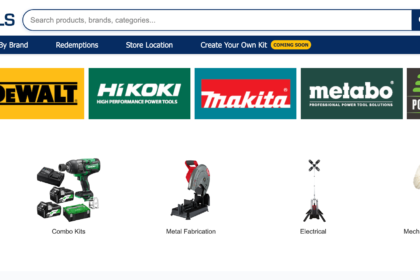A few years ago, people used to rely almost entirely on search engines like Google to find businesses, products, and answers to their questions. They typed in keywords and scanned through pages of results, hoping to find what they needed.
Now, in 2025, instead of sifting through endless links, more and more people are turning to AI-powered assistants like ChatGPT, Gemini, Perplexity, and Claude for quick, tailored answers and recommendations.
These AI agents are becoming the new gatekeepers of online information, deciding which businesses get noticed and which don’t.
This shift means that the way your business gets found online is changing. It’s no longer enough to just rank well in traditional search results. To stay visible and relevant, you need to optimize your website to be discoverable and trusted by these AI systems. In other words, you need to prepare for AI discovery.
From SEO to AEO: A New Era of Digital Visibility
Traditional SEO has served us well for years. It focused on ranking your website in search engine results pages by optimizing keywords, building backlinks, and perfecting metadata. That way, when someone searches for your products or services, your website would be among the top results.
But things are shifting. AI-powered assistants are changing how people look for information. Rather than scanning through links, users now pose complex, specific questions to AI, expecting clear, concise answers.
This shift introduces a new concept: AEO, or Answer Engine Optimization. Your website isn’t just competing to appear on a search results page anymore; it’s competing to be part of the actual answer AI gives. That means your content needs to be discoverable and trustworthy to AI models, or you risk being invisible to an increasingly large audience.
Why Traditional SEO Is No Longer Enough
Don’t get me wrong—traditional SEO still matters. Keywords, backlinks, metadata, and site performance remain foundational. But these tactics are only one part of the visibility puzzle now.
The core difference is that AI agents don’t just show lists of links. They synthesize information from multiple sources to provide direct, conversational answers. If your brand isn’t included in those answers, it’s as if your business doesn’t exist for those users.
This change means you can’t rely solely on ranking well on Google anymore. You need to ensure AI agents can find, understand, and trust your information so they include it when generating responses.
How AI Agents Discover and Use Brand Information
AI models like ChatGPT don’t work like traditional search engines. Googlebot, for example, crawls websites daily or weekly to keep its index fresh. But AI models rely primarily on pre-ingested data, large datasets that they were trained on. They sometimes supplement this with retrieval-augmented generation (RAG), fetching data from trusted sources during a session.
What does that mean for your business?
If your latest product updates, customer testimonials, or new blog posts aren’t part of the data AI models have access to, they won’t appear in AI-generated answers or recommendations. Even if your website is fantastic, AI won’t “know” about it.
Your content needs to be accessible both as part of the AI’s training data and as a reliable source for real-time retrieval. Otherwise, you risk losing out on crucial opportunities to connect with customers who are asking AI for help.
What It Means to Be “AI-Discoverable”
Being AI-discoverable means your brand exists in a way that AI systems can find, interpret, and trust your content—just like how you want humans to understand and trust your business.
Here’s what that involves:
- Complete, Current Content: Make sure every key piece of information—release notes, API documentation, case studies, testimonials, thought leadership articles, and reviews—is public and up to date. AI needs fresh, thorough content to work with.
- Structured Data and Metadata: Use schema markup and clear metadata so AI can identify what each piece of your content is about. This helps separate product details from company history or customer feedback, making it easier for AI to organize and use your information.
- Authority Signals: Just like people trust expert opinions, AI relies on authority signals. Reviews, third-party mentions, certifications, and expert content boost your credibility and make AI more likely to include you in recommendations.
- Accessibility for AI Crawlers: Avoid blocking AI bots with robots.txt or paywalls. Consider using files like LLMs.txt that help you guide which parts of your site AI can crawl and index.
The Consequences of Poor AI Visibility
Most businesses today are invisible to AI language models, not because they don’t rank on Google, but because AI simply doesn’t “know” them.
If your brand isn’t included in AI answers, you’re excluded from conversations your customers are having as they explore options, ask for advice, or seek solutions. That means missing out on important touchpoints in the customer journey.
Even the best traditional SEO efforts won’t fix this alone. Without AI visibility, your business risks falling behind competitors who are already part of these AI-driven discussions.
Strategies and Tools for AI Visibility
To improve your AI visibility, you need strategies and tools designed specifically for this new environment:
- AI Presence Tracker: Use tools that show where your brand appears (or doesn’t) in AI-generated answers. This insight helps you spot gaps and opportunities.
- AI Feeds: Provide structured, rich data feeds—like detailed product information or customer reviews—that AI can easily ingest to answer complex queries about your business.
- Citation Profile Management: Audit how AI uses your content and optimize it for more and better citations. Consistent and accurate mentions of your brand across the web improve your AI credibility.
- AI Query Insights: Discover what questions your customers are asking AI. Use that data to tailor your content to answer these specific queries directly.
- LLMs.txt Auto-Updater: Keep AI models in sync with your latest content by automating updates to resources that AI ingests.
Practical Steps to Optimize for AI Discovery
Ready to get your website AI-ready? Here’s a simple plan:
- Audit Your Content: Review your website and identify gaps or outdated information. Is your content complete and fresh?
- Implement Structured Data: Add schema markup to your product pages, testimonials, FAQs, and other key content so AI can understand it better.
- Regularly Publish Updates: Keep your case studies, customer testimonials, and product specs current. Fresh content keeps your brand relevant to AI and users alike.
- Make Your Site Accessible: Check that AI crawlers can reach your pages. Avoid unnecessary blocks and guide AI with LLMs.txt if possible.
- Monitor AI Visibility: Use tools to track how your brand shows up in AI answers. Adjust your content strategy based on what you learn.
- Leverage Automation Tools: Platforms like Gushwork’s AI Visibility Suite can help automate updates, track visibility, and optimize your presence in AI models.
The Business Impact of AI Discovery
Getting discovered by AI doesn’t just increase your website traffic—it positions your brand at the heart of modern customer journeys.
- You’ll be part of the recommendations and answers that help people make buying decisions.
- Your business gains authority and trust, showing up as a reliable expert.
- You future-proof your digital presence, preparing your brand for continued growth as AI becomes central to how people search, evaluate, and choose products and services.
In short, being AI-discoverable is an investment in your brand’s long-term relevance and success.
Conclusion
We’re in the middle of a big change. The way customers find businesses online isn’t just about ranking on Google anymore. It’s about being part of the answers AI gives every day.
If you haven’t started optimizing your website for AI discovery, now is the time. Audit your content, update it, add structured data, and monitor your AI presence.
To make this easier, consider using tools like Gushwork’s AI Visibility Suite. It is designed to help businesses like yours stay ahead by automating visibility tracking, content optimization, and AI readiness.
Don’t wait until your competitors leave you behind. Try Gushwork today, and start making your website ready for the future of visibility.








